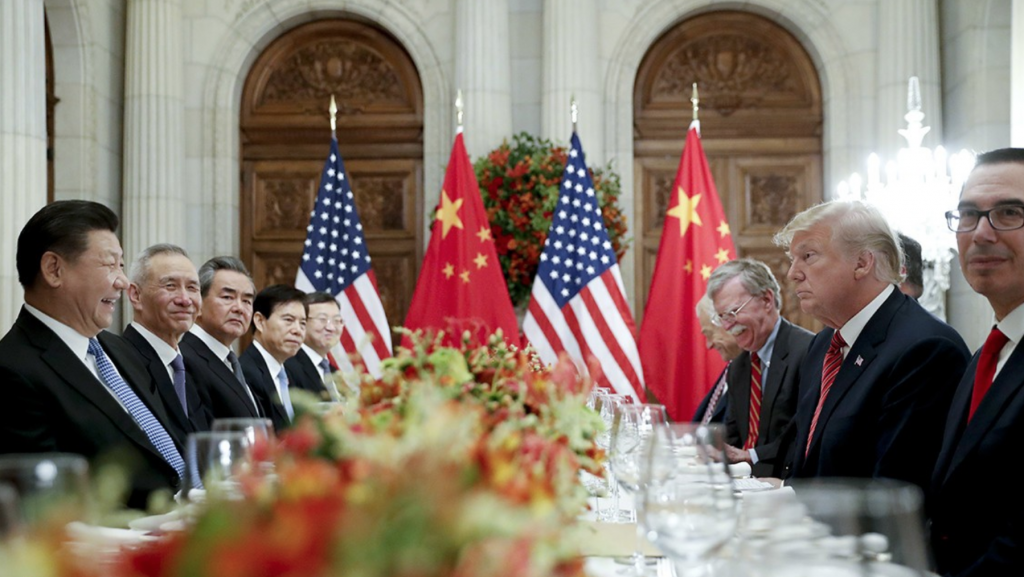
US, China won't impose additional tariffs after January 1
Chinese President Xi Jinping and U.S. President Donald Trump put their bilateral trade war on pause momentarily, striking an agreement to hold off on slapping additional tariffs on each other's goods after January 1, as talks continue between both countries.
In a White House readout of a dinner at the G-20 summit in Argentina, Xi and Trump discussed a range of nettlesome issues — among them the trade dispute that has left over $200 billion worth of goods hanging in the balance.
"President Trump has agreed that on January 1, 2019, he will leave the tariffs on $200 billion worth of product at the 10 percent rate, and not raise it to 25 percent at this time," the statement read. Over the next 90 days, American and Chinese officials will continue to negotiate lingering disagreements on technology transfer, intellectual property and agriculture.
"Both parties agree that they will endeavor to have this transaction completed within the next 90 days. If at the end of this period of time, the parties are unable to reach an agreement, the 10 percent tariffs will be raised to 25 percent," the statement added.
Meanwhile, "China will agree to purchase a not yet agreed upon, but very substantial, amount of agricultural, energy, industrial, and other product from the United States to reduce the trade imbalance between our two countries. China has agreed to start purchasing agricultural product from our farmers immediately," the White House said.
Xi also plans to designate Fentanyl as a controlled substance, according to the statement. As the U.S. opioid crisis continues to rage, it would suggest that people selling the drug to parties in the U.S. would be subject to stiff penalties in China.
The Trump administration had threatened to more than double the tariffs it has already slapped on $250 billion worth of Chinese imports, while Xi's government has put targeted tariffs on $110 billion in U.S. goods. The standoff has raised fears among investors and businesses that the global economy could be dragged down by the dispute between the world's two largest economies.
Trump, who made U.S. trade policy a central plank of his platform as a presidential candidate in 2016, wants to address specific gripes with China's trade practices, especially its alleged theft of U.S. intellectual property.
Trump touted the G-20 meeting thus far as a "great success" in a pair of tweets Saturday. But he postponed a press conference, which was scheduled to follow a summit meeting, until after the funeral of former President George H.W. Bush, who died at age 94 on Friday.
In a joint declaration, the group of nations said the current multilateral trading system is "falling short of its objectives and there is room for improvement," and supported reforms to the World Trade Organization.


























